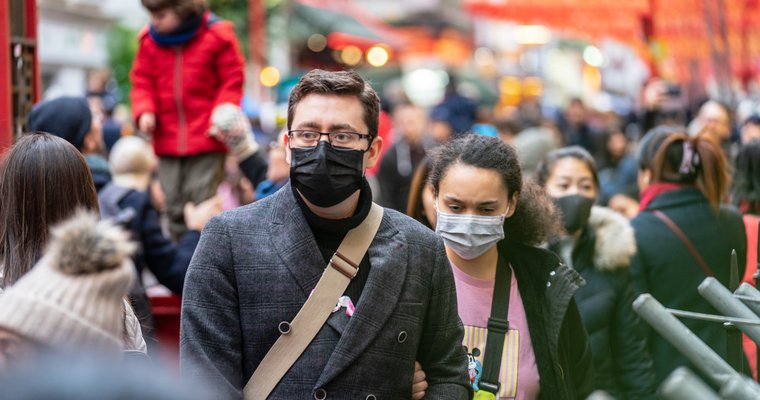Missional mutiny: Missional living in a pandemic and beyond (Part 1)

 ChatGPT
ChatGPTThink about your home right now. Take a mental walkthrough looking for one thing: exercise gear. Do you have a treadmill tucked away in storage? A set of dumbbells being tripped over more than used? Most of us have a lot of equipment we planned at some point to use, or maybe we did for a bit. But for a lot of us, we plan to use the equipment more than we actually use it.
Back in January I saw the potential damage that could come from the current global pandemic. One of the things I decided to do was to get healthier. I restarted the Hour of Power of consistent exercise. I've lost almost 50 pounds to date. I want my health to be an accelerator of effectiveness and not a liability.
For many years now a lot of us have realized the United States has turned from being a missions sending nation to a mission field as well. Like the shock Lesslie Newbigin experienced in 1974 when he returned to a very different Great Britain than he had left many years prior, we see the need for the gospel in our land is greater than ever.
In response to this, conversations began around the idea of the church becoming missional. As best I can tell the term was first used in the sense we do now by Francis DuBose. In 1983 DuBose, then professor at Golden Gate Baptist Theological Seminary (now Gateway Seminary), published the book The God Who Sends.
For years since books have been published about the missional idea. I've added my share. But I'm afraid we've done more talking about it than practicing it. This is our moment.
Having exercise equipment and a plan doesn't necessarily translate into the action required to workout consistently. Something has to happen to motivate us: a visit to the doctor reveals health issues that can be solved by exercise; we hire a personal trainer; or maybe we genuinely get sick and tired of being sick and tired.
COVID-19 has pushed the church to do more than make missional plans. The pandemic has forced us to think about church differently. It takes us back to the why of our existence in our communities. This includes corporate worship, but as I argue here, the bigger issue is how churches will execute to serve and share with our communities. Missional means being a sent people, and COVID-19 has sent us out from our buildings.
The early church can help us here. In Acts 8 we read of the great persecution from the stoning of Stephen. Christians were scattered, running for their lives. As they were literally sent out, what did they do? They "went about preaching the word" (Acts 8:4). No, this was not a band of preachers; the word here is not the term from which we get "evangelize." They were sharing Christ as they went. Philip is given as an example, going to Samaria both to preach to the people there, and then to share Christ personally with the Ethiopian Eunuch.
This story picks up again in Acts 11, where we read of men scattered from the same persecution arriving at Antioch. You can read the remarkable account in 11:19-26, but a church was planted in this great city teeming with Gentiles. These unnamed, sent witnesses from Cyrene and Cyprus shared the gospel as they went.
There could have been better circumstances for the early church to be sent out than persecution. We would prefer other circumstances than a pandemic. But the fact is, we have been sent out of our normal patterns of worship, fellowship, and life in general. This is not the time to shrink back in fear but to seize the moment for the gospel.
Many churches are doing just that. We see larger churches more prominently, but churches of every size are touching their communities for Christ. Church of the Highlands in Alabama, a very large multisite church, has led blood drives, sewn countless masks, hosted testing sites, gathered in cars in hospital and prison parking lots to sing and bless both healthcare workers and the incarcerated, and distributed tons of food. They have recorded thousands of decisions for Christ over the past few weeks.
Many churches are doing similar work in their community. The question for us is whether this will be a short term inconvenience to be left behind when we get back to our former way of doing things, or will we see this as an opportunity to refocus the mission on being sent out for the sake of the gospel and the good of others.
More on COVID-19
- An easy way to gauge your church's growth and decline (by Thom Rainer)
- 20 of the most difficult things pastors have done in their job (by Thom Rainer)
- What's your thought process for the new year? (by Rob Streetman)
- 5 major developments for small churches (by Thom Rainer)


